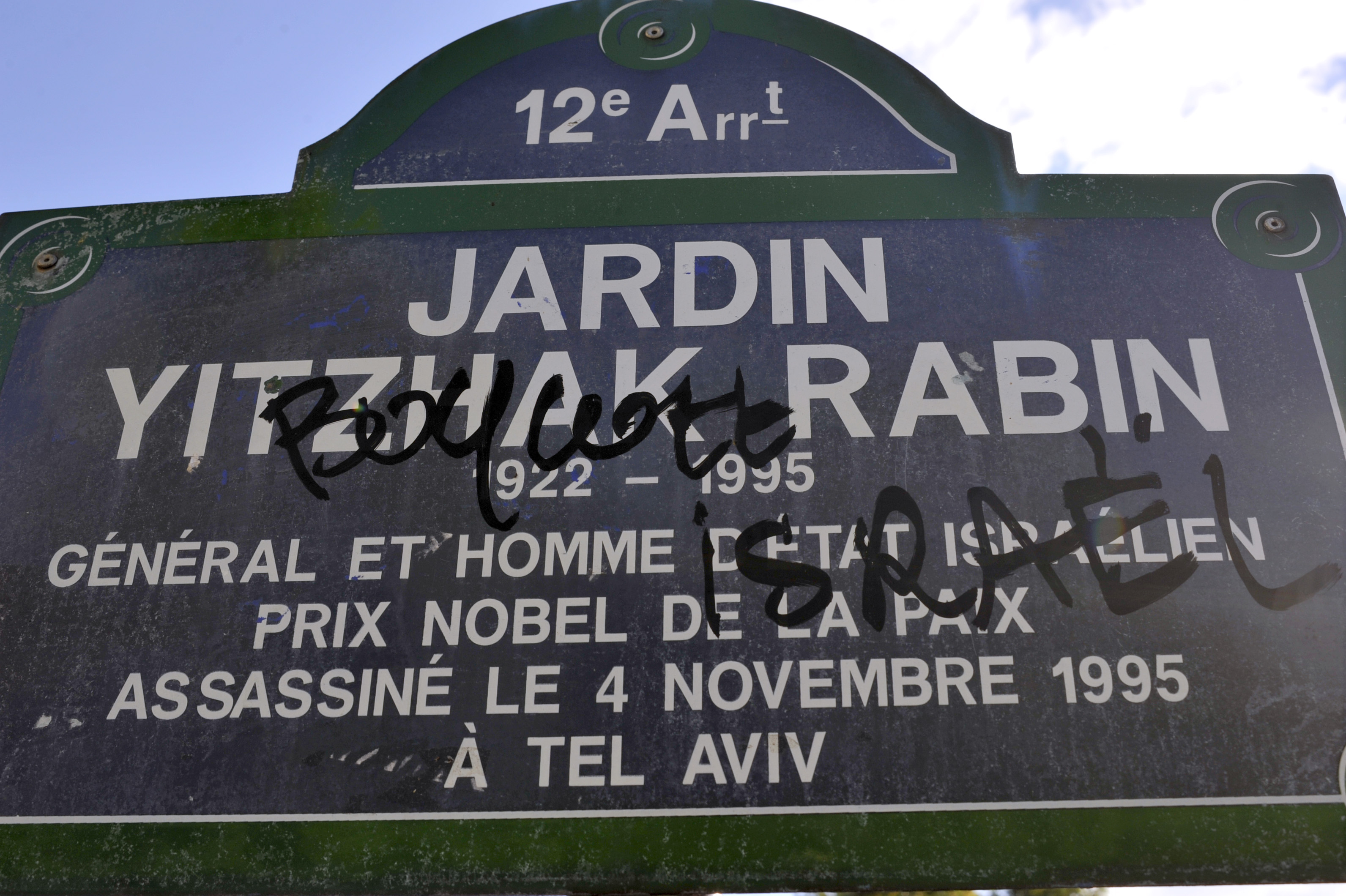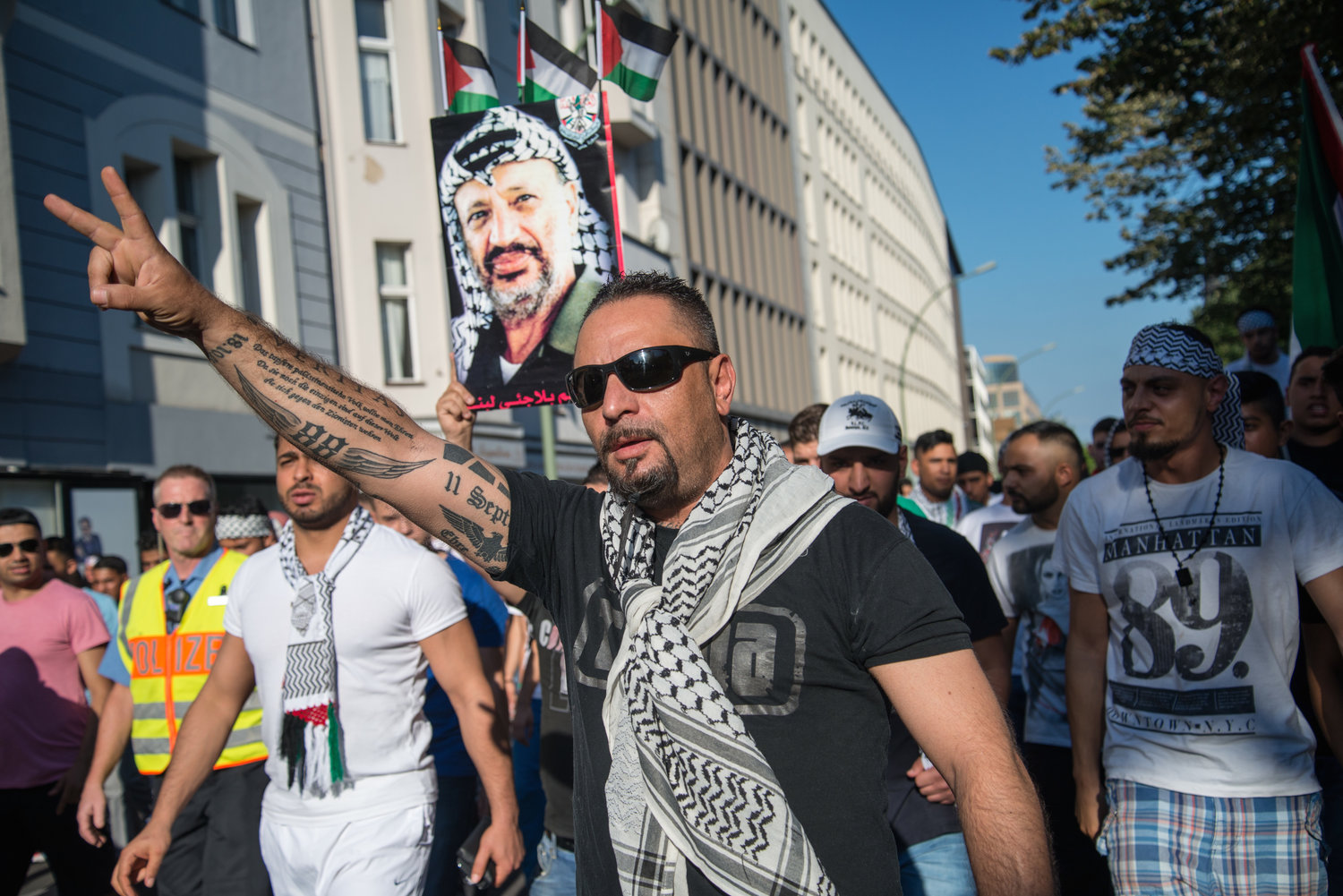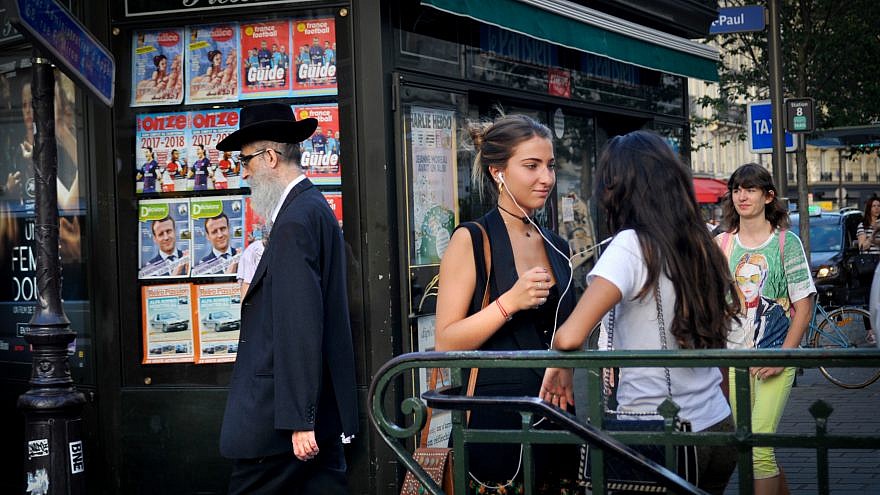If Sacha Ghozlan had any doubts about whether there would be more anti-Semitic attacks in France following the March murder of an 85-year-old Holocaust survivor, he quickly got an answer.
Ghozlam, the president of the French Jewish Students Union (UEJF), planned to attend a rally on March 28 with more than 10,000 others in response to the murder of Mireille Knoll, who was found stabbed 11 times in her Paris apartment a few days earlier.

“At that particular time, it was very difficult to organize a gathering of the” Jewish students, said Ghozlam. “They refused to release a public statement” condemning the vandalism “because they didn’t want to be involved in the Palestinian-Israeli conflict.”
That rapid-fire series of events is becoming increasingly common for French Jews, many of whom feel as though they are under attack from both the left and right ends of the political spectrum, not to mention terrorist organizations.
In 2017, there were 311 anti-Semitic incidents in France, a 7.2 percent decrease from the previous year, according to a report published by the Kantor Center for the Study of Contemporary European Jewry at Tel Aviv University. But the number of violent anti-Semitic incidents increased from 77 in 2016 to 97 in 2017—and that did not include some violent incidents that were still under evaluation.
Ghozlam, a 26-year-old law student, and others are looking to the French government not only to provide increased security for its some 400,000 Jewish residents, but also to intervene in stopping anti-Semitic rhetoric online and vigorously condemning it in public.
“We want them to fight more against hate speech on the Internet because we feel that one of the best ways to spread anti-Semitism and anti-Zionist conspiracy theories is social media,” he said.
French police arrested a 27-year-old neighbor of Knoll and a 21-year-old homeless man in her murder. They have not made any arrests in the vandalism, according to Ghozlam.
Study measures attitudes among French towards Jews
After the vandalism, the UEJF wanted to get political leaders’ attention, so they decided to commission a survey that measures attitudes among French people towards Israel and Jews.
The study from the Institut français d’opinion publique, a market research firm, found that 54 percent of the respondents ages 18 to 24 believe that “Zionism is an international organization that seeks to influence the world and society in favor of Jews.”
Fifty-two percent considered Zionism a racist ideology, and 57 percent had a bad image of Israel.
The organization published the results on the 70-year anniversary of Israel’s founding.
“It was a good way to show how people feel about Zionism,” said Ghozam. “And it showed that we as an anti-racist organization have some work to do to explain what is Zionism and to explain what is the reality in Israel.”

In July, the organization is funding a trip to Israel for about 20 non-Jewish social workers from underprivileged neighborhoods in France, where the Boycott, Divestment and Sanctions (BDS) movement against Israel has a strong presence.
“We want to try to build bridges between the Jewish communities and other communities,” he said.
Jews in France and elsewhere in Europe now face not only traditional anti-Semitism from the far-right, but also from far-left parts of European society and from Muslim immigrant communities, according to Simone Rodan-Benzaquen, director of the American Jewish Committee-Europe. The focal point is a “biased view of the Israeli-Palestinian conflict.”
She would like to see European governments adopt a “zero-tolerance policy” towards anti-Semitism.
“There seems to be a discrepancy between the words and the actual actions,” she said. “You will have very strong words from the president, from the prime minister, on anti-Semitism, but then you will have small incivilities or anti-Israeli demonstrations in the streets of Paris that suddenly turn sour.”
She would like to see law enforcement arrest people who make anti-Jewish statements, saying “even the smallest anti-Semitic incivility should be harshly condemned and penalized.”
‘Unwilling to ban evil organizations’
Israeli Prime Minister Benjamin Netanyahu visited Europe this week and met with French President Emmanuel Macron, among other European heads of states. In addition to discussing the Iran nuclear deal and the recent violence in Gaza, Netanyahu also pointed out the wave of anti-Semitic violence in France and met with members of the Jewish community.
“We are preventing terrible attacks, including here, in France. Israel has stopped a great deal of attacks in Europe and will continue to do so,” Netanyahu told Jewish leaders in Paris.

Groups like the Simon Wiesenthal Center, a nonprofit that fights anti-Semitism, would also like to see European governments take a greater role in preventing the attacks.
Members of Hamas and Hezbollah are preparing to march in a parade in Berlin on June 9 calling for the destruction of the Jewish state. The Wiesenthal Center has asked the Berlin mayor to ban the gathering.
“The German governments in different states have banned parties, have banned demonstrations, but when it comes to Israel and Jews, they are very unwilling to ban evil, anti-Semitic organizations,” said Benjamin Wienthal, a fellow with the Foundation for Defense of Democracies who splits his time between Berlin and Jerusalem. “The bottom line is Germany has abandoned Israel and abandoned Jews worldwide in the fight against anti-Semitism.”

Also this week, news came from Germany that a 14-year-old missing Jewish girl had been found on June 6 having been raped and murdered. A 20-year-old Iraqi and 35-year-old Turkish migrant are suspected to be behind her death.
While that may be disturbing, Wienthal, also a correspondent for TheJerusalem Post, said he was not shocked by the UEJF report. He sees it as “part and parcel of the normalization of the contemporary anti-Semitism in Europe.”
“My advice to European Jews,” he added, “is to rapidly make aliyah.”



























Jews of Eurabia today have an option that Jews in Europe did not have 80 years ago.
Take it before it’s too late.